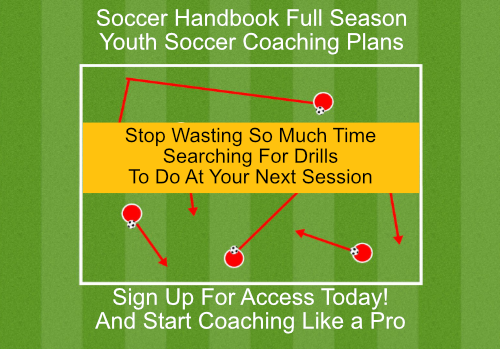How Your Club Can Foster a Positive Culture
Parents play a crucial role for youth soccer teams across the country and the world, both in good ways and bad. While there is more good soccer parent behavior than bad, there can sometimes be too much negativity from parents. This can prevent a positive sideline culture from forming.
It’s possible for your team to be successful without a positive sideline. However, it will be much easier for your team and your players to achieve success when there is. Plus, it will be much more pleasant for everyone if there is a positive atmosphere. But how can you create this on the sidelines for your club?
Often, parents don’t even realize when they are hurting the team’s atmosphere, rather than helping. They just need a little guidance. As the club representative, you should look to be a positive influence and help promote this attitude for parents. The reality is, though, everyone can learn something about being more positive and helping the teams and the club.

Boost the Team’s Energy
In soccer, more than in many sports, fans are crucial to how a team plays. Many teams have far better records when they are playing at their home stadiums, and some have the famous “ultra” culture of rabid fans who back their teams through thick and thin. It’s this kind of support that makes players want to perform better, and it makes other players want to join clubs with these passionate supporters.
This isn’t expected of soccer parents. Nobody expects them to set up tifos and set off flares and create an intimidating atmosphere. Ideally, they do the opposite. Youth soccer parents should be welcoming and make games a good experience for everyone.
However, they do need to remember that while they might be at games as parents, they are also there as fans. Their kids need support, as does the entire team. The energy of the players and the team is often related to the energy of the parents on the sidelines. If the parents are bored or negative, it’s possible that the players will play the same way.
Of course, no parent is expected to be shouting and energetic for the entire game. There are easier ways to show support, whether it’s by offering words of encouragement, clapping, or cheering.
Parents need to provide this positive energy occasionally throughout the game, regardless of the result, to keep the team motivated and engaged. It also sets a good example of being positive and not dwelling on results or certain plays, whether it is other parents or the players who need to acknowledge this.
Another thing that helps is trying to be invested. Youth soccer might not be the most important thing in the world for all parents —they might not even like soccer very much — but it means a lot to the kids and the team when they show interest. Cheering for goals, celebrating wins, and just general encouragement can mean that much more to everyone. So remind them of that.
Want more confident coaches and more engaged players this season?
Explore our full-season training plans
built specifically for youth soccer clubs.
Help Youth Players Focus, Not the Opposite
There is a limit to how much parents should communicate with their kids when they are on the field. While talking to them can be helpful and encouraging, it can also be a distraction. It’s all about finding the right balance, which doesn’t always come naturally.
There are obvious things to avoid. Talking about things not related to the game, for instance, is guaranteed to take your kid’s mind away from the game. Talking to them for too long. Even about a related topic, like their positioning on a previous play. This may also distract them because it takes their focus away from the game.
There are also things that can distract kids that are less obvious, though. For example, if a parent is talking to their child and giving contrasting advice compared to their coach, A young player may not know what to do after this and struggle. In general, it’s best to leave tactics to coaches and focus on being encouraging, so remind parents to try to limit their interference.
At the same time, there are moments when a parent talking to their youth player is necessary to help them focus. If they start to lose interest or zone out, this can help keep them invested in the game. If your young player is continuously confused by one rule, say they keep getting called offside. Briefly explaining can help them understand, focus, and prevent frustration.
Over time, players won’t have this problem anymore, but younger players may need this help early on. Helping keep them focused will see both them and their team get stronger. So, occasionally, it is alright to let young players communicate with their parents during the games.
Communicate Simple Rules For Parents
All parents need to follow sideline etiquette. However, if they have never been youth sports parents before, they might not know how to act. So, it’s essential to communicate how to act. The most important rules to discuss are about behaving respectfully with others.
Not every conversation will be entirely positive, but it’s important to share advice and feedback. Nobody likes it when parents yell at referees, for instance, so make sure that you address the issue if that happens.
Coaches should talk to their parents first. If that doesn’t help, then a representative from the club should reach out to the parents involved and encourage them to act in a more positive and productive way.
With the help of coaches or members of the club, you can establish and communicate rules to focus on. Focus on the values that you and your club want to promote and what is important to your kids. After all, behaving poorly around the kids is not the example that any parents want to set.
Respect is also an important rule to prioritize, whether it is to referees, parents, coaches, or players. All youth soccer parents need to have respect for others. Most do, but it’s easy to get a little carried away in all sports settings, especially when it’s your child.
Another crucial mentality is that there should not be a focus on results. Let the parents know early on that things will be done in the best interest of the players, their team, and the development of both. This prevents parents from setting unrealistic goals and benchmarks, or trying to apply any influence to get their kid to play more, or a coach removed from a team. These are extreme examples, but the idea is the same.
Coaches have enough going on as it is, so when the club sets up these boundaries in advance, it will prevent them from getting involved in drama and problems off the pitch. That makes their job much easier, and everyone’s time with the team will be much more pleasant.
There are also the rules of the game that parents need to understand. It will be easy for them to become more invested and follow their kids’ and their teams’ success if they know the rules. Explaining the basics before the season may help the parents get more engaged, especially for those who don’t understand the sport particularly well.
Turn Parents into Culture Ambassadors
Ideally, all parents on your team will behave well and be on their best behavior on the sidelines. After all, they are representing not only themselves by how they act, but also their child and even the team they play for. Unfortunately, parents are not always on their best behavior, so it’s important to work with those who do create a positive atmosphere.
In addition to helping their kids, parents can help other parents. Parents talk to parents on the sidelines during games, they mingle during practices, and this can create a close atmosphere. Encouraging and showing appreciation for those who do a good job of acting in everyone’s interests will encourage others to do the same.
Make sure to let parents and guardians know the importance of what they do. Everything they do is vital to your club. Whether taking their kids to practice, bringing snacks to games, or simply being respectful on the sidelines. They should know that coaches and members of the club appreciate them. Parents who are reminded of this are also more likely to continue to behave this way in the future.
The goal is to have all parents working in the same direction and supporting all of the kids and the team. Doing this and maintaining good relations with parents will make games a more pleasant experience for everyone and can even help the kids and their team perform better.
Final Thoughts
While some might not realize it at first, being a soccer parent is a very responsible job. Over time, anyone can learn to be a better soccer parent, but there is always more that people can learn. By keeping an open mind and a positive mindset, any parent can be an asset to the kids, the team, and the club from the sidelines.





